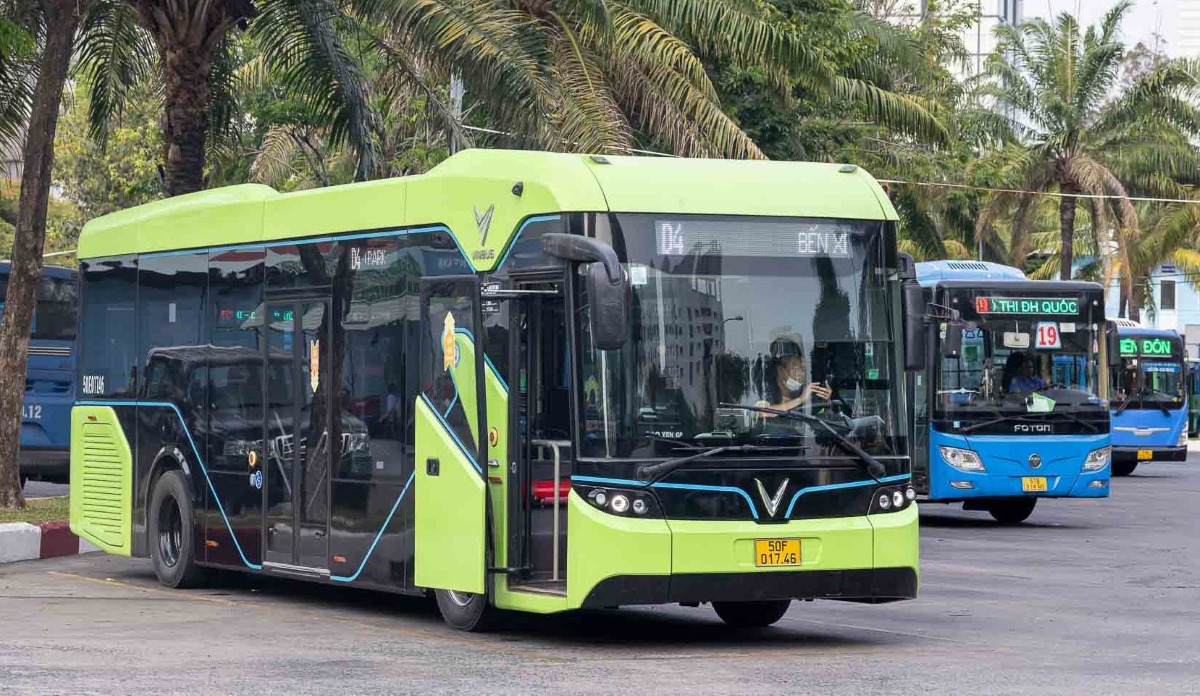HCMC – HCMC plans to fully electrify its commuter bus network by 2030, replacing all diesel and compressed natural gas (CNG) vehicles with more than 3,600 electric and green-energy buses operating on nearly 300 routes.
According to the city government, the proposal for this transition has been submitted to the Standing Board of the HCMC Party Committee for consideration, before a new resolution to this effect can be approved by the municipal People’s Council. The plan aims to accelerate the shift toward cleaner public transport in line with the city’s 2050 net-zero commitment.
Current estimates show that the city’s bus fleet emits about 553,000 tons of CO2 per year. Without intervention, that figure could exceed 838,000 tons by 2030.
HCMC currently operates 176 bus routes with 2,386 vehicles, including 627 electric buses—accounting for 26.3% of the total—and 451 CNG buses, or 17.9%. By 2030, the network is expected to expand to 297 routes and 3,617 buses, including 1,474 vehicles for new routes.
To encourage private investment, the city is proposing a range of financial incentives. For vehicles, the government would subsidize up to 85% of investment costs, capped at VND300 billion per project. Investors would pay a 3% annual interest rate, with the city budget covering the remainder.
For charging stations, the city would support 70% of construction costs and 85% of technology and equipment expenses, capped at VND200 billion per project. Investors would also receive a 50% interest subsidy for up to seven years.
HCMC currently operates 47 electric bus routes with 627 vehicles and five charging stations equipped with 56 charging poles, all funded by private investors—enough to meet current operational needs.
The transition plan forms part of the city’s broader emissions control program for the transport sector. HCMC’s goal of achieving a fully electric bus fleet by 2030 is 20 years ahead of the national timeline set by the central Government.
In the next phase, the initiative will expand to other types of vehicles. The city also plans to pilot low-emission zones (LEZs) in the downtown area, Can Gio, and Con Dao Island, where vehicles failing to meet emission standards could be restricted.
The new policy could take effect as early as 2026, initially targeting service motorbikes and commercial vehicles.









